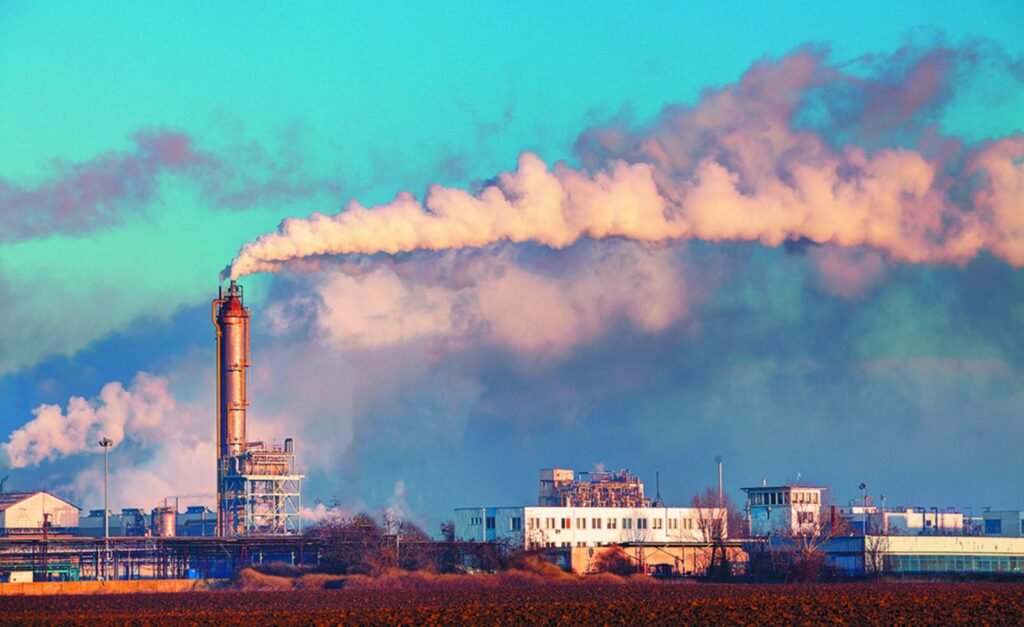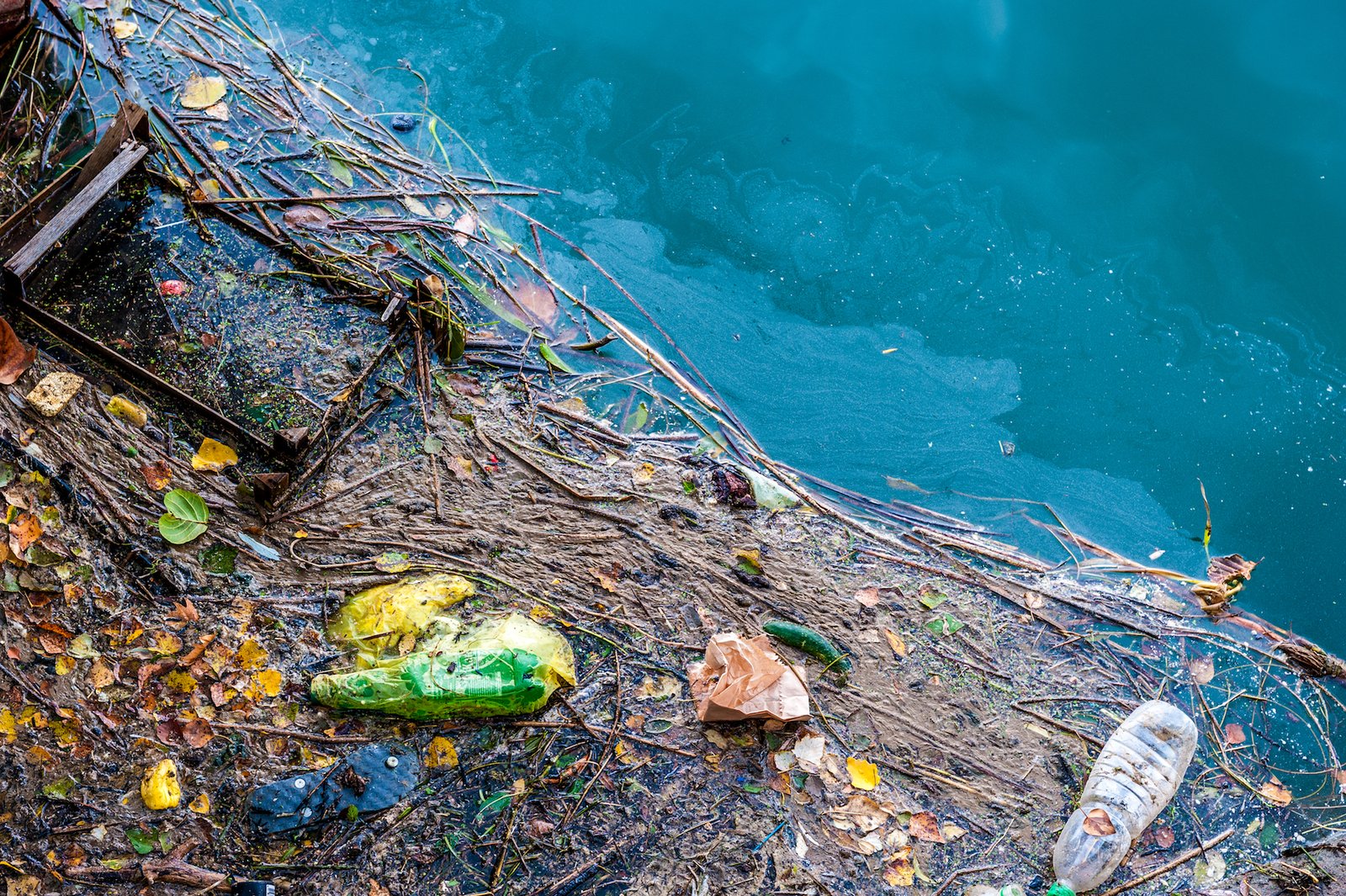The Impact of Pollution on Health in Pakistan

Pollution is a grave concern that poses significant risks to human health. In Pakistan, a country facing numerous environmental challenges, pollution has emerged as a major threat to public well-being. This article delves into the impact of pollution on health in Pakistan, shedding light on the types of pollution prevalent in the country and their adverse effects on the population.
Pollution refers to the introduction of harmful substances or pollutants into the environment, resulting in adverse effects on living organisms. Addressing pollution is crucial to safeguarding the health and well-being of individuals, as it directly contributes to the occurrence of various diseases and disorders.
Read more: 15 Best Tips for a Healthy Lifestyle in Pakistan
Types of pollution in Pakistan

Air pollution:
Pakistan grapples with high levels of air pollution, primarily caused by vehicular emissions, industrial activities, and the burning of fossil fuels. The release of pollutants such as particulate matter, sulfur dioxide, and nitrogen oxide has severe consequences on human health.
Water pollution:
The contamination of water sources due to industrial waste, inadequate sanitation systems, and agricultural runoff poses a significant health risk to the population. Consuming contaminated water can lead to waterborne diseases and gastrointestinal problems.
Noise pollution:
Rapid urbanization and increased traffic contribute to excessive noise levels in cities, leading to noise pollution. Prolonged exposure to high noise levels can result in hearing impairment, sleep disturbances, and elevated stress levels.
Soil pollution:
The excessive use of chemical fertilizers and pesticides in agriculture leads to soil pollution. Consumption of crops grown in contaminated soil can introduce harmful chemicals into the human body, causing various health complications.
Health effects of pollution
Respiratory diseases:
The inhalation of polluted air, particularly fine particulate matter, increases the risk of respiratory conditions such as asthma, bronchitis, and chronic obstructive pulmonary disease (COPD).
Cardiovascular diseases:
Air pollution has been linked to cardiovascular disorders, including heart attacks, strokes, and high blood pressure. The inhalation of pollutants can trigger inflammation, disrupt blood flow, and impair heart function.
Skin problems:
Exposure to pollutants in the environment can lead to skin irritations, allergies, and dermatological conditions. Polluted water and air can cause rashes, eczema, and premature aging of the skin.
Increased cancer risk:
Certain pollutants, such as asbestos, benzene, and heavy metals, are known carcinogens. Prolonged exposure to these substances increases the likelihood of developing cancer, including lung, bladder, and skin cancer.
Impact of pollution on vulnerable populations
Children:
Children are particularly susceptible to the adverse effects of pollution due to their developing immune systems and higher respiration rates. Pollution can impair their lung development, hinder cognitive growth, and increase the risk of childhood asthma.
Elderly individuals:
The elderly often have pre-existing health conditions, making them more vulnerable to the harmful effects of pollution. They may experience exacerbated respiratory and cardiovascular problems, reduced immune function, and increased mortality rates.
Pregnant women:
Pollution exposure during pregnancy can have detrimental effects on both the mother and the unborn child. It may lead to complications such as preterm birth, low birth weight, developmental issues, and an increased risk of birth defects.
Government initiatives to reduce pollution
The Pakistani government recognizes the urgent need to tackle pollution and has implemented several initiatives to mitigate its impact. These include:
Environmental policies and regulations:
The government has introduced stricter environmental regulations to control industrial emissions, promote proper waste management, and enforce pollution control measures.
Promotion of renewable energy sources:
To reduce reliance on fossil fuels and decrease air pollution, the government has encouraged the adoption of renewable energy sources such as solar and wind power.
Public awareness campaigns:
The government, along with environmental organizations, conducts public awareness campaigns to educate citizens about the detrimental effects of pollution and promote sustainable practices.
Role of individuals in combating pollution

While government efforts are crucial, individuals also play a pivotal role in reducing pollution. Here are some actions individuals can take:
Adopting sustainable practices:
Embracing eco-friendly habits such as conserving energy, minimizing plastic use, and practicing responsible waste disposal can contribute to pollution reduction.
Reducing waste and recycling:
Proper waste management, including recycling and composting, helps reduce the amount of waste that ends up in landfills, minimizing pollution.
Using public transportation:
Opting for public transportation or carpooling reduces vehicle emissions, thus mitigating air pollution and traffic congestion.
Read more: Why Best Salesforce Health Cloud Required in 2023?
Conclusion
Pollution poses a significant threat to public health in Pakistan, with various types of pollution contributing to the occurrence of respiratory diseases, cardiovascular problems, and increased cancer risks. Vulnerable populations such as children, the elderly, and pregnant women are particularly affected. While the government has taken steps to address pollution through environmental policies and public awareness campaigns, individual actions are also crucial in combating pollution and preserving a healthier environment for future generations.
FAQs
What are the major sources of air pollution in Pakistan?
The major sources of air pollution in Pakistan include vehicular emissions, industrial activities, and the burning of fossil fuels.
How does pollution affect children’s health?
Pollution can impair children’s lung development, hinder cognitive growth, and increase the risk of childhood asthma.
What can individuals do to reduce pollution?
Individuals can adopt sustainable practices, reduce waste, recycle, and use public transportation to contribute to pollution reduction.
Are there any government initiatives to combat pollution in Pakistan?
Yes, the Pakistani government has implemented environmental policies, promoted renewable energy sources, and conducted public awareness campaigns to address pollution.
Why is pollution a concern for pregnant women?
Pollution exposure during pregnancy can lead to complications such as preterm birth, low birth weight, and increased risk of birth defects.












3 Comments